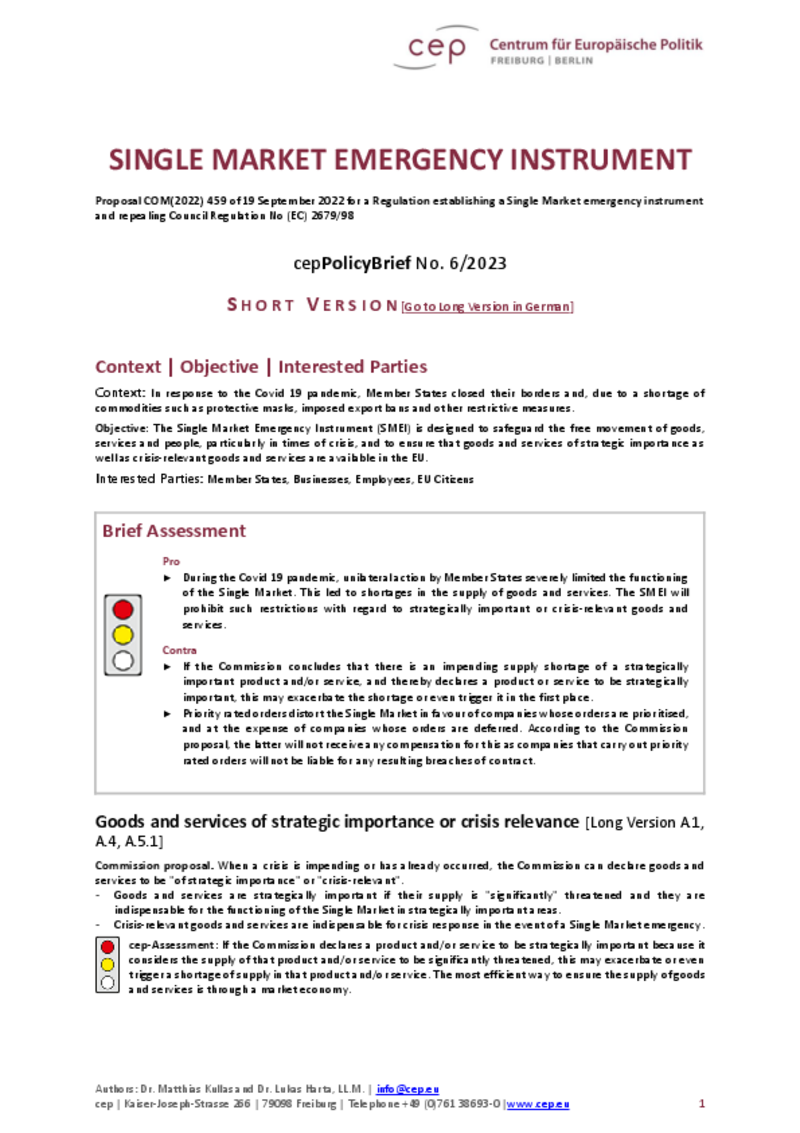
Single Market & Competition
Single Market Emergency Instrument (cepPolicyBrief COM(2022) 459)
cepPolicyBrief
"The Commission's goal is understandable, but the implementation is only partly practical. The market is still the most efficient way to regulate existential emergencies. Otherwise, there is a danger of exacerbating supply shortages," says cep economist Matthias Kullas, who analysed the planned directive with cep lawyer Lukas Harta. At the latest when the Commission classifies certain goods and services as strategically important, the demand for them will increase abruptly and thus trigger or exacerbate a shortage, the cep experts warn.
According to Harta, the SMEI could help to maintain the movement of goods and services in emergency situations. This goal is also appropriate. However, the regulation is not legally sound in many places. "The internal market emergency instrument is riddled with vague legal terms, the application of which has considerable consequences," says cep lawyer Harta. For example, the procedures for information requests and for priority-rated orders contracts need to be clarified.
The authors praise the Commission's decision not to include medicinal products, medical devices and semiconductors in the new regulation. There are already independent emergency instruments for these. As for other crisis instruments such as the IPCR (Integrated Political Crisis Response) or the SMET (Single Market Enforcement Taskforce), however, the distinction is not as clear-cut.
The main point of criticism is the planned drastic interventions in entrepreneurial freedoms. "The European Commission wants to be able to oblige companies to give priority to certain orders. This not only massively interferes with the freedom of these companies, but also overrides the position of those companies whose orders are put on hold without compensation," stresses Harta. The proposed exemption from liability for companies executing the priority contract also falls short of the mark, especially because it cannot be applied if an obligation is governed by the law of a third country.
Download PDF
| cepAnalyse (publ. 04.25.2023) | 207 KB | Download | |
 | |||



